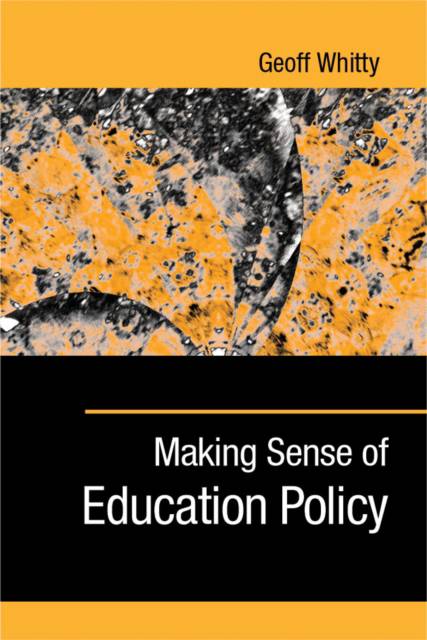
- Afhalen na 1 uur in een winkel met voorraad
- Gratis thuislevering in België vanaf € 30
- Ruim aanbod met 7 miljoen producten
- Afhalen na 1 uur in een winkel met voorraad
- Gratis thuislevering in België vanaf € 30
- Ruim aanbod met 7 miljoen producten
Zoeken
Making Sense of Education Policy
Studies in the Sociology and Politics of Education
Geoff Whitty
Paperback | Engels
€ 109,95
+ 219 punten
Uitvoering
Omschrijving
`The particular strength of this book is Geoff Whitty's grasp on and insights into the politics of education... he is able to bring to bear an authoritative perspective which is unrivaled in the United Kingdom. there is no other current book which compares in terms of the breadth and depth of this' - Professor Stephen Ball, Institute of Education, University of LondonThis book aims to make sense of the changes in education policy over the past decade, using the resources of the sociology and politics of education. The author shows that wider sociological perspectives can help us to appreciate both the limits and the possibilities of educational change. Geoff Whitty illustrates this through studies of curriculum innovation, school choice, teacher professionalism and school improvement. He considers how far education policy can be used to foster social inclusion and social justice and the book concludes with an assessment of New Labour education policy in these terms. The book deals with education policy in England and Wales, as well as making comparisons with contemporary education policy in other countries. This book is relevant to students of education at masters and doctoral levels, students of social policy, and policy-makers.
Specificaties
Betrokkenen
- Auteur(s):
- Uitgeverij:
Inhoud
- Aantal bladzijden:
- 168
- Taal:
- Engels
Eigenschappen
- Productcode (EAN):
- 9780761974529
- Verschijningsdatum:
- 18/05/2002
- Uitvoering:
- Paperback
- Formaat:
- Trade paperback (VS)
- Afmetingen:
- 243 mm x 146 mm
- Gewicht:
- 303 g

Alleen bij Standaard Boekhandel
+ 219 punten op je klantenkaart van Standaard Boekhandel
Beoordelingen
We publiceren alleen reviews die voldoen aan de voorwaarden voor reviews. Bekijk onze voorwaarden voor reviews.











